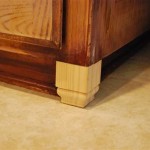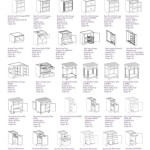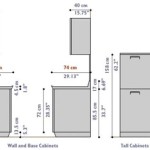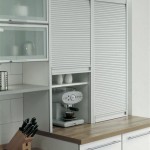Essential Aspects of Eliminating Damp Smell in Kitchen Cupboards
Dampness in kitchen cupboards is a common problem, resulting in unpleasant odors that can permeate your kitchen and affect the quality of stored items. Addressing this issue promptly is crucial to maintain a hygienic and inviting kitchen environment.
This content piece will delve into the essential aspects of eliminating damp smell in kitchen cupboards, providing effective solutions and preventative measures to ensure a fresh and odor-free kitchen.
Causes of Dampness in Kitchen Cupboards
Understanding the underlying causes of dampness is vital for effective elimination:
* Condensation: Moisture in the air can condense on cupboard surfaces, especially during colder months. * Poor Ventilation: Inadequate ventilation or closed doors trap moisture inside, promoting mold and mildew growth. * Plumbing Leaks: Leaky pipes or faucets can contribute to excess moisture and dampness. * Damp Walls: Moisture from outside can penetrate walls and affect adjacent cupboards. * Wet Items: Storing damp towels, utensils, or food containers can create a moist environment.Eliminating Damp Smell
To effectively remove damp smell from kitchen cupboards, consider the following steps:
* Identify and Fix Leaks: Inspect plumbing fixtures for leaks and repair them promptly. * Improve Ventilation: Ensure proper airflow by opening cupboard doors or installing exhaust fans. * Clean and Dry Thoroughly: Wipe down all cupboard surfaces with a clean cloth or mild cleaner. Allow them to dry completely before storing items. * Use Moisture Absorbers: Place moisture-absorbing products, such as silica gel packets or activated charcoal, inside cupboards to absorb excess moisture. * Air Out Contents: Remove all items from cupboards and air them out in a dry, well-ventilated area. * Consider Dehumidifiers: In areas with high humidity, utilizing a dehumidifier can help reduce overall moisture levels.Preventing Dampness
Once dampness has been eliminated, proactive measures can prevent its recurrence:
* Store Items Dry: Ensure pots, pans, and other kitchenware are thoroughly dry before storing them. * Avoid Overcrowding: Keep cupboards organized and avoid overcrowding to allow air circulation. * Use Anti-Moisture Liners: Place moisture-resistant liners in cupboards to prevent condensation and protect shelves. * Regularly Monitor Ventilation: Check exhaust fans and vents to ensure they are functioning correctly. * Seal Damp Walls: If dampness originates from outside walls, consider sealing them with a moisture-resistant coating.Conclusion
Eliminating damp smell in kitchen cupboards requires addressing the underlying causes, implementing effective solutions, and implementing proactive measures. By following the steps outlined in this content piece, you can effectively remove unpleasant odors, maintain a hygienic kitchen environment, and ensure the longevity of your stored items.

How To Get Rid Of A Musty Smell In Cupboards Hunker

Musty Smell In Kitchen Cabinets Causes And Solutions Smelly Cupboards Inside

7 Easy Tips For Getting Rid Of Musty Smells

Damp Smell In The Kitchen Cupboard Ehow

Kitchen Mold Mildew Where It Hides What You Can Do

Help With Odor In Kitchen Cabinets Hometalk

Musty Smell In Kitchen Cabinets Cupboards Causes Solutions

How To Stop Mould In Cupboards

How To Get Rid Of Damp Smells A Comprehensive Guide Checkatrade
Help How Do I Get Rid Of That Musty Smell In My Drawers And Cupboards
Related Posts








